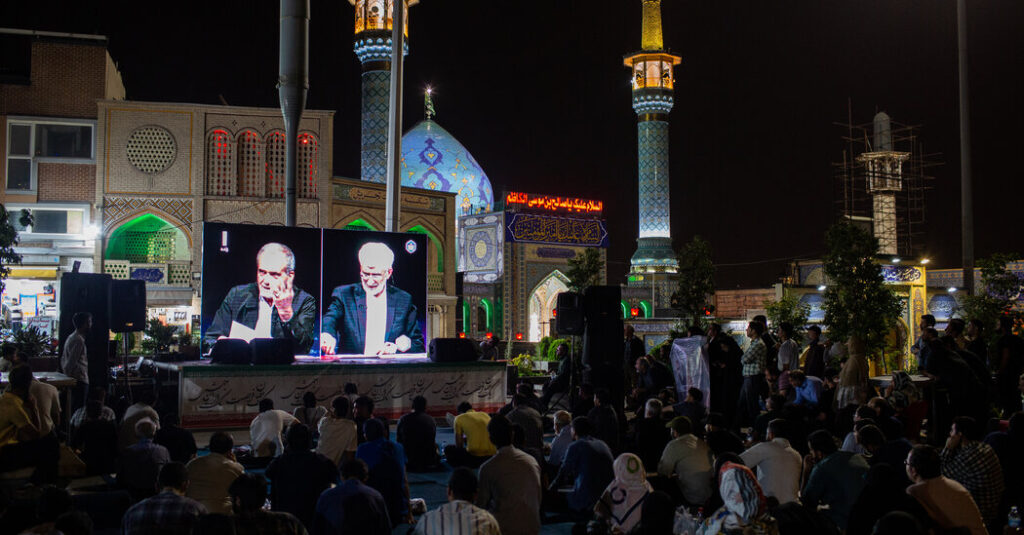Reformists and ultra-conservatives will face off in a runoff election on Friday, but a first round marred by record low voter turnout and dissatisfaction with the political system left neither candidate with the majority of votes needed to win the presidential election.
The July 5 election, being held a year earlier than scheduled following the death of former President Ebrahim Raisi in a helicopter crash in May, will determine whether reformist candidate Dr. Massoud Pezeshkian or hardline candidate Said Jalili will hold the presidency in a country plagued by a stagnant economy, domestic protests and foreign policy challenges.
In the first round of voting, 60 percent of voters either did not show up to the polls or cast blank ballots in protest against a ruling regime they see as incompetent and ineffective in resolving Iran's domestic and international problems.
Dr Pezeshkian received over 10.4 million votes (42.4%) out of approximately 24 million cast, while Said Jalili received 9.47 million votes (38.6%).
Dr Pezeshkian received the most votes in the first round, but it is unclear who will come out on top on Friday. The third-place candidate, Mohamed Baker Ghalibaf, who received 13.8 percent of the vote in the first round, supported Mr Jalili, but earlier opinion polls had indicated that many of Mr Ghalibaf's supporters would not support Mr Jalili.
Here's what you need to know about Dr. Pezeshkian and Mr. Jalili:
Dr. Massoud Pezeshkian
Dr. Pezeshkian is a cardiac surgeon and veteran of the Iran-Iraq War, who served as a member of parliament and Iran's Minister of Health.
Reform candidates were largely disqualified from the 2021 presidential and March parliamentary elections. Experts say the Guardian Council, the governing body that decides which candidates can run, likely allowed Dr. Pezeshkian to run in order to increase voter turnout after many Iranians boycotted the March parliamentary elections. The government considers a high voter turnout important to legitimize the elections.
Pezeshkian, an Azerbaijani from Iran's ethnic minority group, was backed by former Iranian President Mohammed Khatami. He has spoken out in favor of nuclear talks with the West, framing the discussions as an economic issue. U.S.-led sanctions over Iran's ballistic and nuclear missile programs are currently crippling the country's economy.
Dr Pezeshkian has a history of openly criticising the government and denouncing the violent implementation of the compulsory hijab law after protests swept across the country in 2022 following the death of Iranian Kurdish woman Mahsa Amini.
Said Djalili
Mr Jalili, an ultra-conservative former nuclear negotiator known as a “living martyr” for losing a leg in the Iran-Iraq war, represents some of the country's most hardline ideological views on domestic and foreign policy.
Jalili, who is close to Iran's Supreme Leader Ayatollah Ali Khamenei, said he does not believe Iran needs to negotiate with the United States for economic success.
Mehrzad Boroujerdi, an Iran expert and dean of the College of Letters, Science and Education at the Missouri University of Science and Technology, said Trump's position on the issue gives the public a “completely unrealistic” assessment of Iran's economic strength.
“Not only is he opposed to any nuclear deal, he is also firmly opposed to any opening up to the West,” Boroujerdi said.

